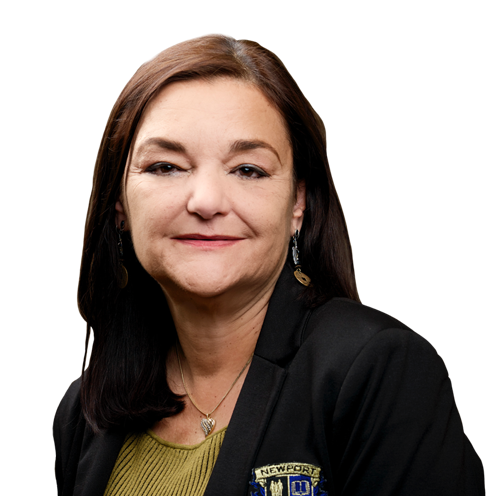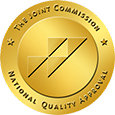Mood Disorder Treatment at Newport Institute
According to the National Institute of Mental Health, as many as one out of every 10 adults suffers from a mood disorder. Moreover, Gen Z and millennials have experienced a greater increase in mood disorders since 2009 than any other age group.
Since mood disorders often come hand-in-hand with co-occurring issues like substance abuse, young adults need integrated treatment in order to attain full recovery. To heal from a mood disorder and move into a healthy, independent future, it’s essential to first uncover the underlying issues.
Mood Disorder Symptoms and Causes
How do I know if I have a mood disorder?
It’s not unusual for an emerging adult to experience emotional ups and downs during this pivotal time of life. However, a mood disorder is defined by more than occasional moodiness.
A mood disorder is a category of mental health conditions that includes all the various types of depression, as well as Bipolar Disorder. Furthermore, a mood disorder’s definition also includes mood disorders associated with times of the year and with hormonal changes.
Types of Mood Disorders
There are a variety of conditions that fall into the category of mood disorders. Hence, a list of mood disorders includes the following mental health conditions.
Also known as major depressive disorder or clinical depression, major depression is one of the mood disorders with the most severe symptoms. It significantly affects daily functioning and quality of life, and is typically diagnosed after at least two weeks of symptoms.
This mood disorder usually manifests as cycles of depressive symptoms and manic symptoms. The intensity and severity of the cycles varies depending on whether the mood disorder is Bipolar I or Bipolar II.
Substance abuse and mood disorders are the most common co-occurring issues. Hence, mood disorder symptoms are enhanced by the effects of substance use—including prescription medications, illegal drugs, alcohol, and other toxins. Moreover, young adults with mood disorders may self-medicate with substances, thereby exacerbating mood disorder symptoms such as depression.
SAD is a form of depression that comes and goes according to the season. With SAD, the increase or decrease in hours of daylight triggers depressive symptoms. While SAD is more common in the winter months, some people suffer from SAD in the summer.
Also known as Persistent Depressive Disorder, this mood disorder is characterized by chronic and low-grade depression and irritability. In general, mood disorder symptoms are less severe in these cases. Dysthymia is diagnosed after symptoms have lasted for at least two years.
This mood disorder resembles Bipolar Disorder in that moods and related symptoms go up and down. However, the intensity of these mood swings is less severe.
Young women who notice extreme mood changes that align with their menstrual cycle may need mood disorder treatment. With Premenstrual Dysphoric Disorder, depression and irritability usually start during the premenstrual phase of the cycle and ease once menstruation begins.
Other medical issues, such as injuries, infections, chronic illnesses, and cancer can trigger symptoms of depression.
Know the Facts
One out of every 10 of American adults suffers from a mood disorder, and in 45% of those cases, symptoms are severe.
Mood disorder symptoms vary according to the type of disorder, as well as the age of the individual. However, there are a number of symptoms that are common to most mood disorders. Here are 15 common symptoms of a young adult mood disorder such as depression or bipolar:
- Feeling sad, hopeless, and helpless
- Anxiety
- Low self-esteem: a sense of worthlessness or inadequacy
- Excessive feelings of guilt
- Lack of interest or enjoyment in activities that were once pleasurable
- Difficulty in relationships
- Insomnia or sleeping too much
- Changes in appetite and/or weight
- Decreased energy and fatigue
- Trouble concentrating
- Having a hard time making decisions
- Physical complaints, including headache, stomachache, or fatigue that don’t improve even when they are treated
- Extreme sensitivity to failure or rejection
- Irritable, hostile, or aggressive mood
- Suicidal thoughts or suicide attempts.
Know the Facts
Suicide is the second leading cause of death among young adults.
When to Get Emergency Help
Suicide is often associated with mood disorders. If you think you or someone whom you care about may attempt suicide, call 911 or your local emergency number immediately. You can also call a suicide hotline. In the United States, call the National Suicide Prevention Lifeline at 1-800-273-TALK (1-800-273-8255) or use its webchat at suicidepreventionlifeline.org/chat.
If a loved one or friend is in danger of attempting suicide or has made an attempt:
- Make sure someone stays with that person.
- Call 911 or your local emergency number immediately.
- If you can do so safely, take the person to the nearest hospital emergency room.
- Never ignore comments or concerns about suicide. Always take action to get help.
Causes of Mood Disorders
Life stressors
Stressful life experiences or life changes, like a death in the family or trouble in school, can catalyze a mood disorder. Since young adulthood is a phase of life that often involves a great deal of changes and new experiences, these events can contribute to mood disorder symptoms.
Traumatic experiences as a child or teenager
Underlying trauma or PTSD often manifests as a mood disorder. This might be a single traumatic event, or ongoing trauma, such as neglect or abuse.
Brain function
Mood disorders may be triggered in part by an imbalance of brain chemicals, also called neurotransmitters. When the regions of the brain that control mood are not well regulated, a mood disorder may be the result.
Family history
Mood disorders may run in families. Research suggests that the risk of mood disorders increases if one or more family members have been diagnosed with depression or Bipolar Disorder.
Know the Facts
Since 2009, major depressive episodes have increased by 63% among young adults aged 18–25.
Questions?
All calls are always confidential.
Mood Disorder Treatment Approaches
Family therapy can also be a critical addition to mood disorder treatment. Family therapy works to heal ruptures in the family system. With greater harmony between parents and children, young adults feel more supported in the healing process.
For other types of mood disorders, specific additional modalities can be effective. For example, light therapy is proven to be successful in reducing symptoms of Seasonal Affective Disorder. For Premenstrual Dysphoric Disorder, Cognitive Behavioral Therapy might be combined with supplements and/or lifestyle changes regarding diet and exercise.
Once you’ve received a diagnosis, the next phase is determining the most appropriate mood disorder treatment. Cognitive Behavioral Therapy (CBT) is one of the most effective evidence-based mood disorder treatment modalities. CBT helps people with major depression and other mood disorders change their self-defeating or self-destructive thought patterns. Then they work to develop healthier ways of thinking about themselves and their symptoms.
Care at Newport Institute


Our Approach
Our integrated approach to mood disorder treatment starts with a comprehensive assessment that determines the type of mood disorder. From there, a team of experts creates a customized treatment plan tailored to the unique needs of each patient. Because every young adult is unique, the treatment approach needs to be as individual as they are.
At Newport Institute, we provide a safe environment where young adults can address deep-seated, unresolved issues. As a result, they are able to let go of old habits and identities, and begin anew.
Michel Mennesson, MD
Psychiatrist
Clinical
Mood disorder treatment at Newport Institute includes a variety of the following scientifically validated clinical modalities. Along with helping young adults process trauma, these therapeutic approaches provide tools for making positive change.
- Individual Therapy
- Attachment-Based Family Therapy
- CBT
- Dialectical Behavioral Therapy
- Acceptance Commitment Therapy
- Eye Movement Desensitization and Reprocessing
- Individual Therapy
- Attachment-Based Family Therapy
- CBT
- Dialectical Behavioral Therapy
- Acceptance Commitment Therapy
- Eye Movement Desensitization and Reprocessing
- Individual Therapy
- Attachment-Based Family Therapy
- CBT
- Dialectical Behavioral Therapy
- Acceptance Commitment Therapy
- Eye Movement Desensitization and Reprocessing
Experiential
Experiential modalities give young adults ways to learn emotion regulation and build stress resilience. Moreover, group experiential activities create peer support and reverse the sense of isolation that can come with a mood disorder diagnosis.
- Yoga and Meditation
- Creative Arts Therapy
- Equine-Assisted Therapy
- Adventure Therapy
- Community Service
- Mindfulness/Meditation
- Yoga and Meditation
- Creative Arts Therapy
- Equine-Assisted Therapy
- Adventure Therapy
- Community Service
- Mindfulness/Meditation
- Yoga and Meditation
- Creative Arts Therapy
- Equine-Assisted Therapy
- Adventure Therapy
- Community Service
- Mindfulness/Meditation

Our treatment program focuses on each young adult’s unique DNA, history, temperament, and constitution. We provide an integrated approach that balances their psychological, biological, social, and spiritual needs. At the same time, we provide them with life skills and coping tools, so they can enter the next phase of their lives with confidence and self-understanding.
Barbara Nosal, PhD
Chief Clinical Officer
Marks of Quality Care
Our innovative approach to mental healthcare earns accolades from press around the world, but it is our dedication to our client success that has helped us achieve accreditation from The Joint Commission, exceed licensing standards of care, and nurture affiliations with the following:




